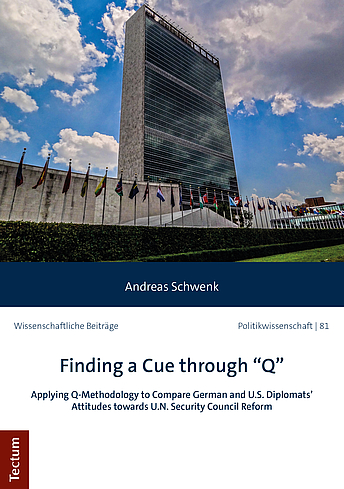United Nations Security Council reform has been hotly debated since the end of the Cold War, which unleashed a global geopolitical realignment. But since 2007, the push to update the Security Council to reflect the power-sharing realities of our modern age – giving for example Germany a seat on the coveted panel – has largely stalled. Finding a Cue through “Q” chronicles the history, key initiatives and major players in this important discussion, while focusing on U.S. and German involvement on the council, and reboots the debate through political discourse analysis and intensive Q-methodology. Diplomats from Germany and the United States were asked to rank their agreement with statements made by stakeholders from government, business, academia and media in both countries. Instead of presenting a priori categories and foregone conclusions, this method describes the parameters of the debate through typologies derived from fresh diplomatic assessments. Social perspective narratives were created from the results, leading to the surfacing of two dominant discourses: Convinced Institutionalism and Cautious Institutionalism. Andreas Schwenk’s innovative approach provides new insight into the thinking of German and U.S. diplomats, and offers a valuable contribution to overcoming the stalemate.
“Considering the growing number of attacks on multilateralism, Mr. Schwenk’s meticulous study clearly illustrates the need for reform of what is designed to be the world’s pivotal multilateral organization. A lack of reform of the U.N. Security Council might lead to future challenges to its primacy. It was my great pleasure to contribute to this fascinating book.”
Doris Hertrampf, German Ambassador (Ret.)
“I enjoyed participating in Mr. Schwenk‘s rigorous and systematic study of the vexed issue of U.N. Security Council reform. His analysis demonstrates broad commitment to keeping the Security Council effective, while the diversity of views confirms that changes to the number, regional distribution, or powers of its members will continue to be difficult.”
William B. Wood, U.S. Ambassador (Ret.)



